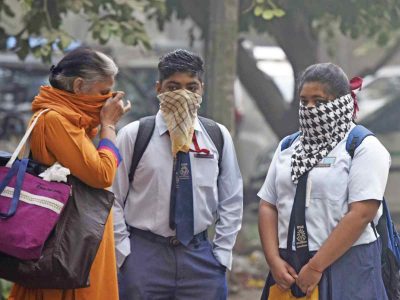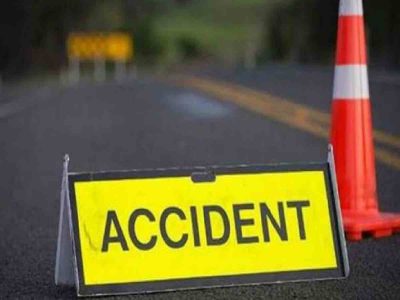The Delhi Environment Minister Gopal Rai on Wednesday announced plans to provide small plants and pots free of cost at people’s doorstep to enhance the green cover in the national capital.
“A team is being set up to identify plant species that have a high mortality rate after transplantation and to ascertain the impact of soil type and other factors on the translocated trees in a bid to improve their survival rate,” he told PTI in an interview.
According to the latest India State of Forest Report, Delhi’s green cover has increased from 21.88 per cent to 23.06 per cent of its geographical area.
However, Rai said the government is planning alternative models such as urban farming to improve the green cover as Delhi will hit the saturation point at some point.
“The Forest Department and the Municipal Corporation of Delhi are going to launch a pilot project to provide plants and pots free of cost to people at their doorsteps.
“We are conducting a ward-wise survey, asking people what type of plants they want. I have got the survey conducted in my assembly constituency (Babarpur in northeast Delhi). If the project becomes successful, we will be able to create an alternate green belt,” he said.
According to biodiversity experts, small plants are easy to maintain and require fewer resources than larger ones. This makes smaller plants a more sustainable choice for increasing green cover in certain areas, they said.
The Delhi environment minister said a few species have a very poor survival rate, and the soil type in some areas does not suit tree transplantation.
“A team is being formed to identify trees that have a dismal survival rate after transplantation. The forest department has been directed to ascertain the impact of soil type on the survival rate of the transplanted trees,” he said.
Data submitted by the forest department to the Delhi High Court in May last year showed that only 33.33 per cent of the 16,461 trees transplanted in Delhi over the previous three years have survived.
The Delhi government’s tree transplantation policy states that agencies concerned must transplant a minimum of 80 per cent of the trees affected by their development works. The benchmark tree survival rate at the end of one year of transplantation is 80 per cent.
Rai said the Delhi government has been able to substantially reduce air pollution and is now working at the micro-level, “trying to ascertain which sources are contributing to air pollution under what conditions.”
“Our action plan to fight air pollution will be based on the inputs provided by the real-time source apportionment study,” he said.
The Delhi government will launch a 16-point action plan to curb pollution in the summer season this month.
Rai also acknowledged that efforts to curb dust pollution have improved in the national capital region (NCR) areas of the neighbouring states.
“Several studies show that around 69 per cent of the air pollution in Delhi comes from outside its boundaries… Certainly, the neighbouring states have had a role in reducing air pollution in the capital but more measures need to be taken,” he said.
Rai suggested that Delhi’s neighbouring states set up a committee to look into the problem of air pollution in the NCR areas as “top officials sitting far away from NCR — in Lucknow and Chandigarh — are unable to feel the urgency to resolve the problem”.
About the opposition parties’ criticism of the Delhi government promoting bio-decomposer, Rai said changing people’s mindset takes time and effort.
“We provided a solution to people. But to convince them to use it requires serious effort. If we have been able to reduce air pollution in Delhi, it’s because we are creating awareness and changing the mindset of people. (In the case of bio-decomposer) we not only convinced people but the central government too,” he said.
To minimise the impact of the burgeoning population of Delhi on the environment, Rai said the city government is connecting all houses in unauthorised colonies to the sewer network, improving public transport and promoting e-vehicles, and working with the Municipal Corporation of Delhi to improve the waste management system and flatten the garbage mountains in Ghazipur, Okhla and Bhalswa.
The government is working to ensure last-mile connectivity through the Mohalla bus service. Free bus travel for women is an excellent effort, integrating women’s safety and the use of public transport, he said.
Rai said the Delhi government is working in tandem with other agencies to improve the condition of roads to curb dust pollution.
(With PTI inputs)





